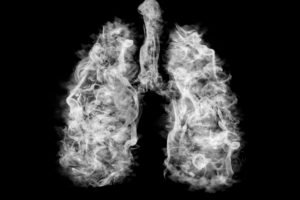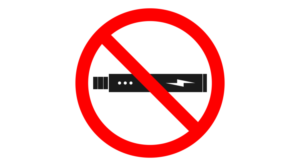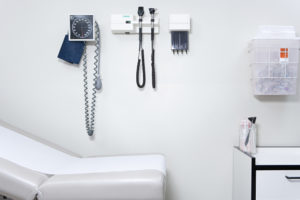Litigating a medical malpractice case has many hurdles, one of which is the expert affidavit requirement. As part of medical malpractice “tort reform,” in addition to caps on damages and a short statute of limitations, many states have enacted laws also requiring an expert affidavit supporting the claim of malpractice. Sometimes called an “affidavit of merit” or “certificate of merit,” several states require an affidavit be filed with a medical malpractice claim (usually with or shortly after initiating the action), stating the expert’s qualification, that the expert reviewed the case, and that the expert believes medical provider breached the standard of care. States vary on their substantive requirements for the affidavit or certificate; however, North Dakota courts have recently issued several opinions clarifying the standards.
The Expert Affidavit
North Dakota’s expert affidavit requirement provides:
Any action for injury or death alleging professional negligence by a physician, nurse, hospital, or nursing, basic, or assisted living facility licensed by this state or by any other health care organization, including an ambulatory surgery center or group of physicians operating a clinic or outpatient care facility, must be dismissed without prejudice on motion unless the plaintiff serves upon the defendant an affidavit containing an admissible expert opinion to support a prima facie case of professional negligence within three months of the commencement of the action. The court may set a later date for serving the affidavit for good cause shown by the plaintiff if the plaintiff’s request for an extension of time is made before the expiration of the three-month period following commencement of the action. The expert’s affidavit must identify the name and business address of the expert, indicate the expert’s field of expertise, and contain a brief summary of the basis for the expert’s opinion. This section does not apply to unintentional failure to remove a foreign substance from within the body of a patient, or performance of a medical procedure upon the wrong patient, organ, limb, or other part of the patient’s body, or other obvious occurrence.
N.D.C.C. § 28-01-46. The penalty for failing to file an expert affidavit within the correct timeframe generally results in dismissal of the action. Because the statute of limitations is short in North Dakota – two years – a dismissal for failure to file the expert affidavit often has the practical effect of being a dismissal with prejudice. See N.D.C.C. § 28-01-18; Ortega v. Bismarck, 2019 ND 133, ¶ 6-8, 927 N.W.2d 872.
The purpose of N.D.C.C. § 28-01-46 is to “screen[ ] … totally unsupported claims and … to prevent protracted litigation when a medical malpractice plaintiff cannot substantiate a basis for the claim.” Van Klootwyk v. Baptist Home, Inc., 2003 ND 112, ¶ 10, 665 N.W.2d 679. “The statute does not require the plaintiff to complete discovery or to establish a prima facie case during the accelerated three-month time frame, but merely requires the plaintiff to come forward with an expert opinion to support the allegations of malpractice.” Id. (citing Ellefson v. Earnshaw, 499 N.W.2d 112, 114 (N.D.1993)). In fact, the relevant standard of care and prima facie case may even be established through cross-examination of a defendant physician. Greenwood v. Paracelsus Health Care Corp., 2001 ND 28, ¶ 13, 622 N.W.2d 195.
The North Dakota Supreme Court has also said “[t]he statute does not require that the expert opinion be sufficient to sustain a directed verdict or that the matter be tried in the context of the motion to dismiss the action under the statute.” Ellefson, 499 N.W.2d at 115. In Ellefson, the plaintiff’s expert expressed doubt as to whether the defendant intentionally caused harm. Id. at 114. The district court then dismissed the action due to plaintiff’s expert’s deposition testimony which included “contemplations, equivocations and ambiguities.” Id. at 113. The North Dakota Supreme Court reversed the district court’s dismissal of the plaintiff’s claim, noting the expert’s testimony, even with some “equivocations” or “ambiguities,” was sufficient to meet the requirement of N.D.C.C. § 28-01-46. Id. at 114-115.
The North Dakota Supreme Court recently issued an opinion relating to a dismissal based on N.D.C.C. § 28-01-46. Cichos v. Dakota Eye Institute, P.C., 2019 ND 234, 933 N.W.2d 452. In Cichos, the district court granted a motion to dismiss, concluding the expert affidavit did not include the correct substantive information. Id. at ¶ 22. The North Dakota Supreme Court clarified its lenient standard for a motion to dismiss under N.D.C.C. § 28-01-46, providing:
We will affirm the district court if, when looking at the affidavit in the light most favorable to the non-moving party, and assuming the facts alleged in the complaint are true, the affidavit does not “support a prima facie case of professional negligence” as asserted in the complaint.
Id. at ¶ 23. The expert affidavit in Cichos provided that the expert (1) reviewed the medical records, (2) made a determination based on those medical records, and (3) concluded the defendant medical professional deviated from the standard of care. Id. at ¶ 25. The North Dakota Supreme Court concluded that the expert’s determination based on the medical records and conclusion that there had been a deviation of the standard of care allowed the Court make inferences that supported the prima facie case. Id. The Court went on to conclude the expert affidavit need not “explicitly describe this aspect of causation” to survive a motion to dismiss. Id.
As stated in Ellefson and reiterated in Cichos, “[t]he statute merely requires a plaintiff to come forward with an expert opinion to support the allegations of malpractice.” Cichos, 2019 ND 234, ¶ 26, 933 N.W.2d 452; Ellefson v. Earnshaw, 499 N.W.2d at 114. However, there is some case law to support a district court provide some leniency and allow a medical malpractice plaintiff the opportunity to rehabilitate their expert affidavit or otherwise provide an extension to obtain an expert opinion.
In Johnson v. Bronson, 2013 ND 78, 830 N.W.2d 595, the district court did not initially dismiss the action but rather allowed the expert to “rehabilitate” the affidavit to comply with N.D.C.C. § 28-01-46. Id. at ¶ 14. Once considering the substance of a second expert’s testimony, the court granted defendant’s motion for summary judgment. Id. at ¶ 16. The court came to this conclusion after one expert was shown to be unaware of local standards of care and a second expert was unwilling to testify that the defendant’s actions were below the standard of care. Id. at ¶ 18. The district court also noted that the two experts failed to offer any testimony about causation. Id. at ¶ 19. The North Dakota Supreme Court affirmed the district court’s decision to enter summary judgment in the defendant’s favor based on those facts. Id. at ¶ 20.
Like in Johnson, the Larsen experts did not conclude there was a violation of the applicable standard of care. Larsen v. Zarrett, 498 N.W.2d 191, 193-94 (N.D. 1993). Additionally, the district court in Larsen granted an extension to the plaintiff before dismissing the claim when the plaintiff failed to submit an admissible supporting expert medical opinion. Id. at 195. The Court ultimately concluded the Larsen plaintiff failed to obtain an expert opinion stating there had been a deviation from the standard of care, which fell into the purpose of N.D.C.C. § 28-01-46 of “preventing protracted litigation when a medical malpractice plaintiff has no basis for a claim.” Id.
Overall, the expert affidavit requirement is a hurdle which places a burden on a medical malpractice plaintiff. However, the North Dakota Supreme Court has clarified that it is not an exceptionally high burden and instead the plaintiff must submit an expert affidavit that supports its allegations of malpractice. Even if the affidavit contains ambiguities or does not explicitly describe the element of causation, it is enough to survive a motion to dismiss. There is also support for district courts allowing some leniency to allow rehabilitation of an expert affidavit along with finding good cause for extensions to submit the affidavit, especially in light of the fact that many medical malpractice dismissals are effectively with prejudice due to the short statute of limitations.
The Obvious Occurrence Exception
While the cases cited above discuss the substantive requirements of the expert affidavit, the North Dakota Supreme Court has more commonly discussed the affidavit requirement in regards to the “obvious occurrence” exception. See Pierce v. Anderson, 2018 ND 131, ¶ 17-18, 912 N.W.2d 291; Cartwright v. Tong, 2017 ND 146, ¶¶ 22-23, 896 N.W.2d 638; Haugenoe v. Bambrick, 2003 ND 92, ¶¶ 10-11, 663 N.W.2d 175. Essentially, if the occurrence of malpractice was so obvious that a layperson could understand the breach of the standard of care, a plaintiff may move forward without filing an expert affidavit. However, the court has been strict in interpreting this provision, typically requiring an expert affidavit in most cases.
For example, the Court has concluded a surgical procedure which failed to set a fractured finger was not an obvious occurrence under the meaning of the statute. Pierce, 2018 ND 131, ¶ 17, 912 N.W.2d 291. In Haugenoe, the Court concluded the open reduction and internal fixation of a fractured elbow was outside the understanding of a layperson and was not an obvious occurrence of malpractice. 2003 ND 92, ¶ 11, 663 N.W.2d 175. The Court also said the removal instead of the tying of fallopian tubes was not an obvious occurrence. Cartwright, 2017 ND 146, ¶ 14, 896 N.W.2d 638. In addition to clarifying which procedures might be an obvious occurrence, the Court has also clarified that even if the alleged malpractice resulted in needing a second surgical repair or other serious consequence, “the occurrence itself must have been obvious, not the result.” Pierce, at ¶ 17 (citing Greene v. Matthys, 2017 ND 107, ¶ 14, 893 N.W.2d 179).
Generally, if the alleged malpractice occurred during surgery, aside from a “failure to remove a foreign substance from within the body of a patient, or performance of a medical procedure upon the wrong patient, organ, limb, or other part of the patient’s body,” North Dakota courts will require an expert affidavit in accordance with N.D.C.C. § 28-01-46 to proceed with the claim. As noted above, the substance of that expert affidavit need not be extensive; however, the affidavit must support the allegations of malpractice.

Born and raised in Western North Dakota, Tatum O'Brien attended North Dakota State University and graduated with distinction from the University of North Dakota School of Law. She has since built years of litigating experience in her home state and become recognized as a highly skilled attorney representing clients in criminal and personal injury cases in addition to helping those who have experienced issues of medical malpractice, serious personal injury, and wrongful death.










Comments for this article are closed.